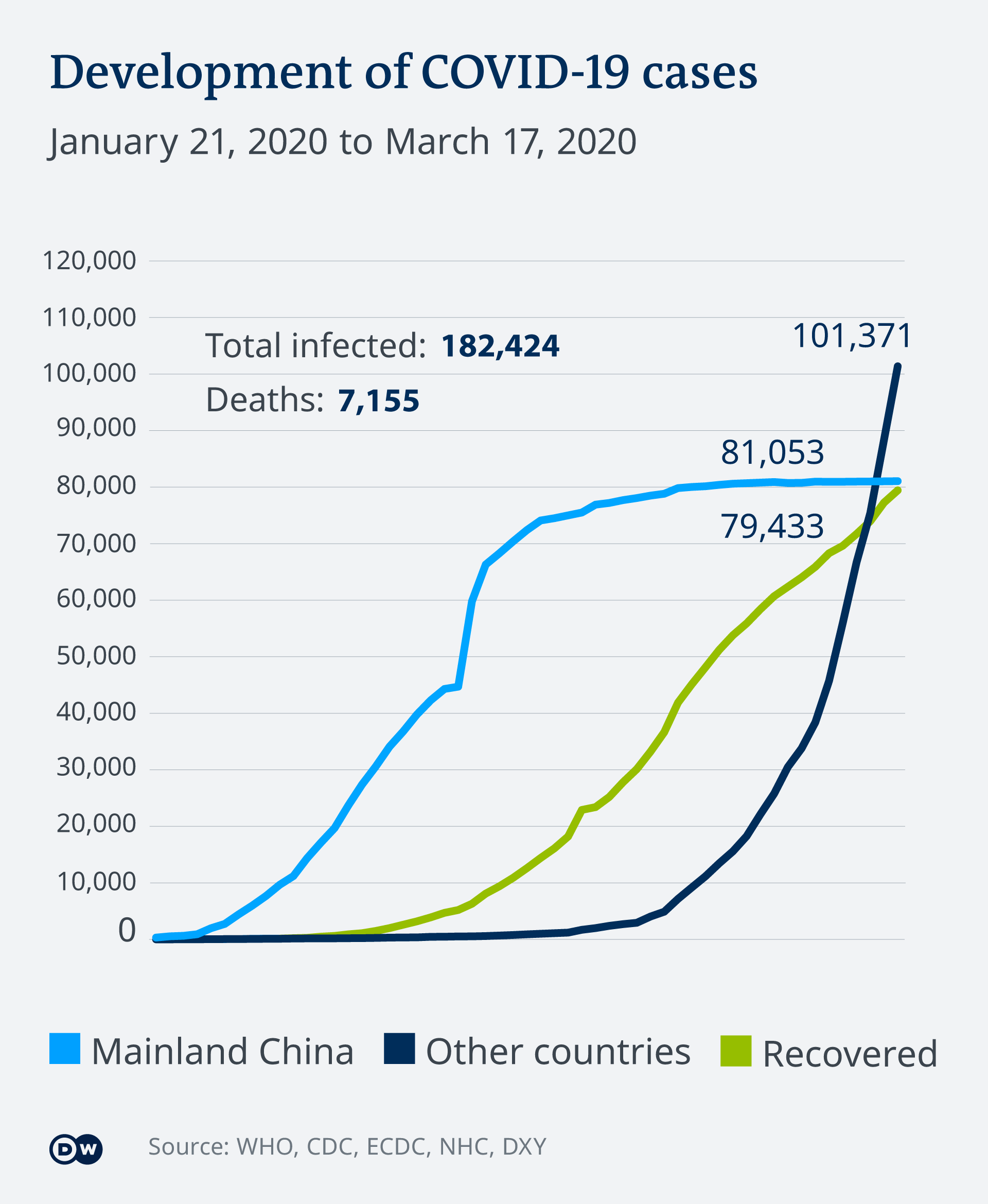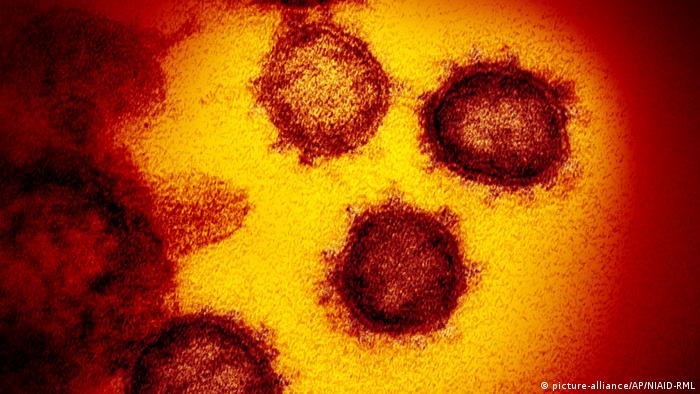People are bulk-buying toilet paper, pasta, soap, tinned foods and disinfectant. Those who have come away empty-handed are asking themselves why so many people panic-buy? DW asked INSEAD's Andrew Yap what's behind it.

DW: Why are people panic-buying?
Andrew Yap: The coronavirus is an invisible enemy. It's something that we cannot see. And, when you cannot see your enemy, what happens is that you lose this sense of control. And when you lose your sense of control, you try and do things to compensate and achieve control again. Buying certain things is one way for you to do that.
If I were to go to the supermarket right now and buy something, would it make me feel less fear about the coronavirus?
What we find in our research is that, if you lose the sense of perceived control, you start buying things to help you solve the problems that caused you to lose control in the first place.
So in other words, if you feel anxious, if you fear the virus, then you start buying things that could potentially prevent you from getting the virus, or find ways that could make your place cleaner.
What people end up doing is they buy masks, they buy hand sanitizers, they buy cleaning detergent to clean their houses and offices, and so on.
Coronavirus infection - how it works
So it doesn't matter whether these measures are effective. If I buy something, I just feel better, I feel safer.
There you go.
You mentioned research. What kind of scientific studies have been conducted on fear and panic and how people react?
So about three or four years ago we wanted to study what happens when people experience stress and anxiety. And we realized that a fundamental element that people hadn't examined is this state of control, or the sense that they lose control. And so we ran a number of experiments in the supermarket, lab experiments.
What we found is that when people lose control, they buy more functional products. Products that help them solve problems. Especially products that help them restore control again.

If control is so important for people, especially in this atmosphere of fear, how would you help our readers restore that control?
One is, you need to get information. You need to be educated and understand what's happening, what the virus is about, how the virus causes you to be infected, the ways you can be infected, how you treat this viral infection.
But I wouldn't ask to you to spend a lot of time on social media, because social media is an echo chamber. One of the reasons you see a lot of panic-buying is because people are watching and seeing photos and videos of people buying toilet paper, all sorts of things, things that are running out. And that led to a lot of cases of panic-buying across the world.
We didn't quite see the same behavior back when there was SARS, which was a similar viral infection, a similar pandemic. There was less panic-buying then, because people didn't have this echo chamber in their palms.
Andy Yap is an assistant professor of organizational behavior at INSEAD Business School in Singapore.

RESEARCHERS AND THEIR SELF-EXPERIMENTS
An oral vaccination against corona
Courage, curiosity or complete hubris? Probably it is a mixture of all these things that causes many scientists to test their own inventions on themselves first. According to the Global Times, a Chinese doctor not only developed an oral vaccine against the SARS-CoV-2 but also tried it out himself. So far without side effects.
DW RECOMMENDS
Coronavirus: Everything you need to know
How is it transmitted? What are the symptoms? And which precautionary measures are recommended to stop it spreading? (27.01.2020)
Corona-phobia: Like SARS, coronavirus fear feeds racism
As the numbers of coronavirus infections and deaths rise, so do the number of reports of racism or xenophobia against Chinese people in Europe and the US. It's not the first time it's happened either. (04.02.2020)
Coronavirus: Who is particularly at risk and why?
Men, women and children are infected with the new coronavirus with equal frequency. But the consequences are very different. Decisive factors are age, gender and possible previous illnesses. (11.03.2020)
Will warmer weather stop the spread of the coronavirus?
Does the coronavirus get weaker when temperatures rise? Virologist Thomas Pietschmann explains why spring really gives hope and why women have a clear advantage in the fight against the COVID-19 disease. (28.02.2020)
What you need to know about the coronavirus
What are the symptoms of COVID-19 and how can you protect yourself? What's the latest status on infection rates and how is the international community responding? Here's an overview of the latest news and information. (27.02.2020)
How to protect yourself against the coronavirus
People around the world are strapping on breathing masks to prevent a viral infection. Other measures are more effective, though. Here are some tips based on WHO guidelines. (23.01.2020)
Researchers and their self-experiments
What do a doctor who swallows his own vaccination against the coronavirus, a psychoanalyst on coke and the fastest man in the world have in common? Answer: They are scientists — and their own guinea pigs, too. (10.03.2020)
Date 11.03.2020
Author Conor Dillon
Related Subjects Coronavirus
Keywords Coronavirus, COVID-19, SARS-CoV-2, infection, virus, panic buying, psychology
Feedback: Send us your feedback.
Print Print this page
Permalink https://p.dw.com/p/3ZDKa
No comments:
Post a Comment